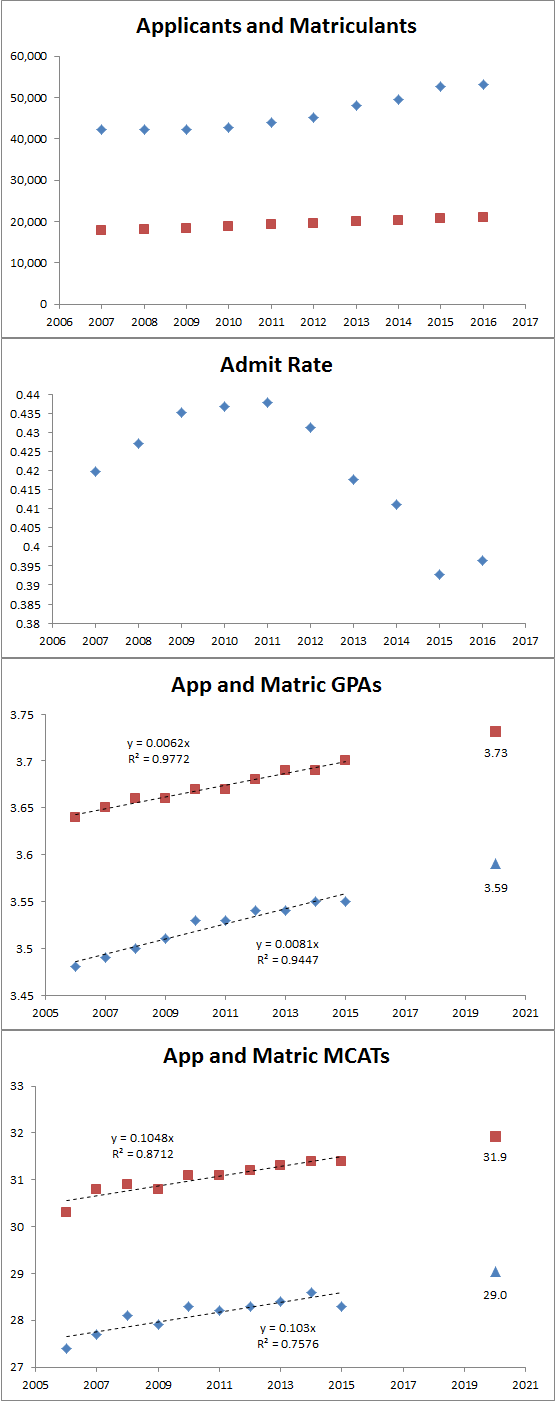yes as well as the internet in general; information, misinformation, rumor etc. Generally, while medical school acceptance is difficult to obtain, site like SDN make it seem mythically impossible unless your are near perfect. Over the past 10-15 years this has been a factor in the growth of the applicant pool for DO. While DO the rate of growth of DO seats have increased at a much faster pace than MD seats, the applicant pool for DO seats has grown at a rate even faster rate. Part of this has be attributed to solid mid tier candidates declining the MD route believing they are not competitive and applying mostly to DO due to the "myth" information (yes a pun) on SDN and many other sites.
This self-thinning of the MD applicant pool then adds to a feedback loop of increasing selectivity for MD schools and the cycle continues. Hence my conclusion that MD schools have become more selective and thus more competitive. This feeds to the growth of DO applicant pool which makes it more competitive (in terms of applicant to seat ratio) and thus they are becoming more selective


